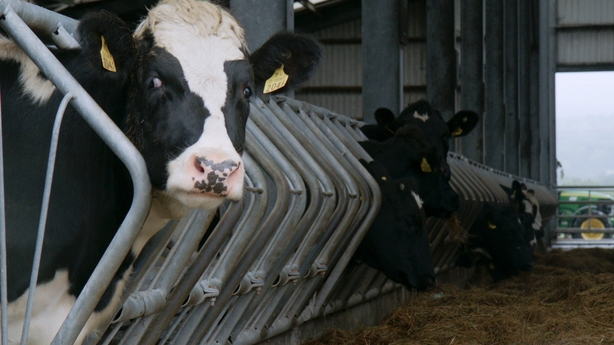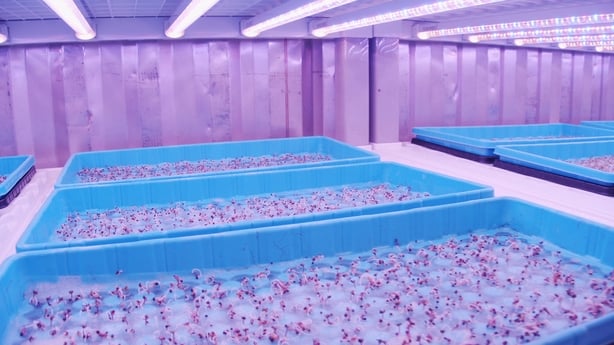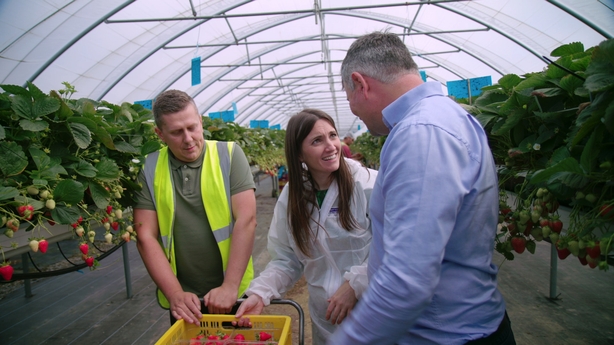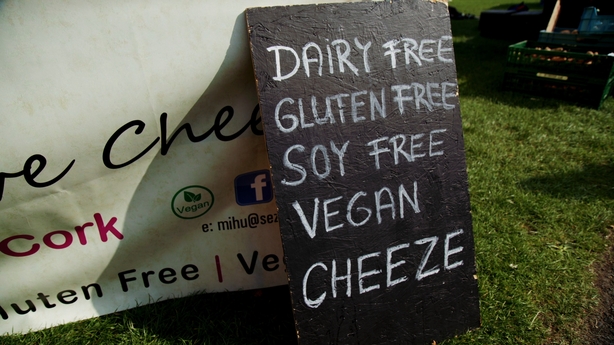Sarah Mooney, a researcher on season 18 of RTÉ One's Eco Eye, discusses her investigation into the future of Irish food.
When our grandchildren open their history books, the 2010s may well be remembered as the decade that 'plant-based' went mainstream. A new era of food has been defined by words like 'cowspiracy’ and ‘veganuary’ trending on social media.
Ask any twenty-something what prompted them to reduce their meat intake, and they’ll likely tell you it all started with a documentary. Though some controversial documentaries have been criticised for factual inaccuracies, it’s impossible to ignore the cultural movement spawned by such blog posts and documentaries, and what the science itself does say.
The rise of plant-based diets, from vegan to flexitarian, is linked in no small way to the global conversation recently sparked about the impact of our food as it makes its way to dinner plates. Yet less often is this discussion specific to Ireland and its unique agri-food system.

In this series of Eco Eye, we set out to take this conversation around our own country, and find out what a sustainable future of food could potentially look like here. We were quick to find that the idea of ‘sustainable food’ is a minefield.
The past hundred years have seen a radical change in the way we produce food in Ireland, with the intensification of agriculture, meaning that the days of cows milked by hand and horse-ploughed fields are long gone.
Today we find ourselves in a place where many argue that Ireland has one of the most carbon-intensive agricultural systems in Europe, due to heavy reliance on meat and dairy production. According to one report by an EU Parliament committee, we emit more greenhouse gas emissions per euro of agricultural output than any other EU member state.

Though we now have a host of food choices on our supermarket shelves unimaginable just a few generations ago, this also means we often rely on food shipped or flown from thousands of miles away, all at a staggering environmental cost.
Scientific consensus offers us a somewhat controversial solution. It tells us that the most climate-friendly diets are often those lowest in meat and dairy products, and those focused on locally grown and seasonal produce.
The planetary health diet of the EAT-Lancet Commission was just one report that made headlines last year when it recommended a largely plant-based diet as the solution to sustainably feeding the world’s growing population. In response to all this, there’s a food revolution of sorts taking place.

Many are now making the move to a more plant-based diet due to concern for the planet, animals, or their health: in 2018, Bord Bia estimated that 8% of the Irish population were vegetarian and another 2% vegan.
Food choices have been politicised in a cultural conflict that has seen industry rushing to reclaim those who’ve switched from meat and dairy to oat milk and falafel - who can forget that memorable ad campaign run by the National Dairy Council satirising a woman’s nut-milk latte order?
It’s true that the answer to a more sustainable diet isn’t always clear-cut, with alternatives like almond milk not necessarily better for the planet due to the water, air miles, and processes used to produce and transport it here. Yet on the course of our journey, we found that the principles of a sustainable diet recommended by scientists could present an opportunity for Ireland to benefit both the environment and economy.
As plant-based food has become big business, many Irish companies are innovating and capitalising on this exponentially growing sector, which the UN forecasts will become an 85 billion euro market over the next decade.

Irish supermarkets are stocking an explosion of plant-based products driven by consumer demand, and the streets of our cities now boast vegan pizzerias, takeaways, bakeries and fine dining.
This is not an uncomplicated story of food revolution. There are many reluctant to forsake a diet heavily reliant on meat and dairy. There are plans to continually scale up the meat and dairy production that our economy depends so heavily upon.
The future of our food is uncertain, and diet is just one of many areas that must be tackled on a systemic level in addressing the climate crisis - yet it is nonetheless one that could hold special economic and environmental benefit here on this island.
Eco Eye: Food for Thought will air on RTÉ One on Tuesday 4th of February at 7pm


